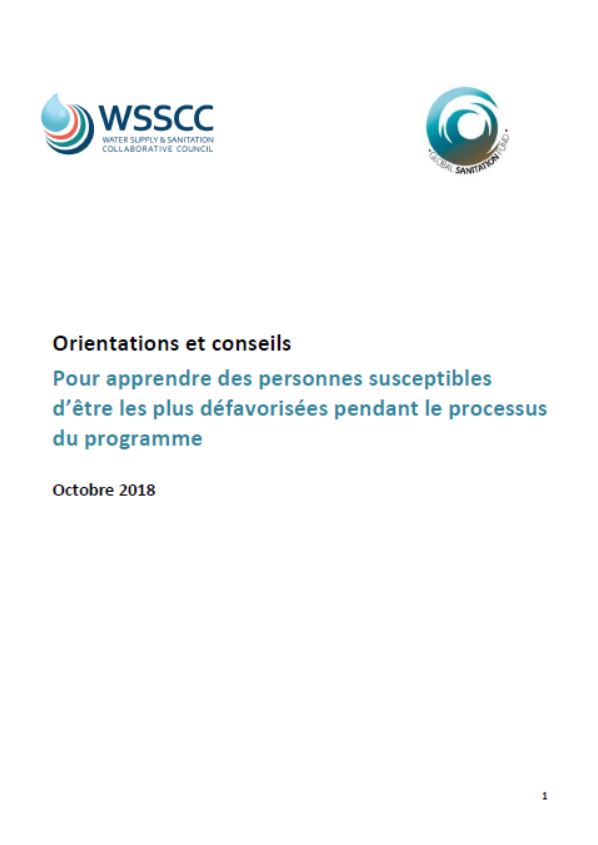Orientations et conseils pour apprendre des personnes susceptibles d'être les plus défavorisées pendant le processus du programme
 |
Guidance and tips for learning from people who may be most disadvantaged during the programme process
report Oct 2018 ; 68 pages
Aut. Sarah House
Ed. WSSCC - Genève
Downloadable format: PdF
Downloadable from the publisher
Editor Presentation
Abstract:
A practical guide for the Global Sanitation Fund (GSF) supported programme teams and Community Led Total Sanitation (CLTS) facilitators on how to collect information related to Equality and Non-Discrimination (EQND) at community level, and in particular to learn from people who may be disadvantaged. This guide provides insights into the key ethics principles for information gathering and documentation, offers practical qualitative learning and participatory tools, showcases good practice tips for qualitative learning, and includes qualitative information gathering tools, participatory exercises, as well as focus group discussion and interview guides.
Keywords: |
CLTS Community-led Total Sanitation (CI) (DT) (ET) (ope) , disability (CI) (DT) (ET) (ope) , drinking water (CI) (DT) (ET) (ope) , gender (CI) (DT) (ET) (ope) , poverty (CI) (DT) (ET) (ope) , sanitation (CI) (DT) (ET) (ope) |
Publisher/Broadcaster: |
|
WSSCC
-
Water Supply and Sanitation Collaborative Council - Genève - Switzerland |
If there is a broken link, we will be pleased to receive a message: communication@pseau.org